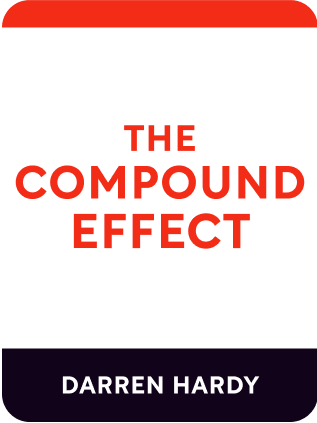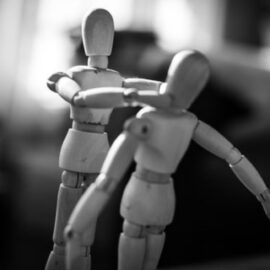

This article is an excerpt from the Shortform book guide to "The Compound Effect" by Darren Hardy. Shortform has the world's best summaries and analyses of books you should be reading.
Like this article? Sign up for a free trial here .
What is the ripple effect in psychology of behavior change? How does making a small change in behavior can alter other aspects of your life?
In the context of behavior change psychology, the ripple effect refers to how one small behavioral change. Whether positive or negative, it can have drastic changes on other aspects of your life.
Read about ripple effect psychology as it relates to behavior change.
Using the Ripple Effect to Change Behaviors
To understand the psychology of ripple effect, consider the following scenario.
Three friends, Larry, Scott, and Brad, live very similar lives as far as income, marriage, health and body weight. Larry says he’s happy and goes about his life not making any changes—but he does complain that “nothing ever changes.”
Scott decides to make small, positive changes. He reads every day and listens to something inspirational during his work commute. He decides to cut 125 calories a day from his diet, and finds it easy to do. He starts walking 2,000 steps more per day, and this change is easily incorporated into his life. He sticks with these simple choices.
Brad decides he wants a little more fun in his life. He buys a big TV so he can better enjoy his favorite shows. He starts sampling rich recipes and desserts, and he installs a bar in his home, having an extra drink each week.
After five months, the three friends are the same as ever. By the 27th month, however, the changes are startling. Brad, who added about 125 calories a day with his drinks and new recipes, has gained 33.5 pounds. He’s not happy at his job, doesn’t feel great, and his marriage is unsteady.
But Scott, who cut 125 calories a day, has lost 33.5 pounds. Brad now weighs 67 pounds more than Scott. Scott also put in 1,000 hours reading and listening to self-improvement material, which he put into practice at work, earning a raise. His marriage is happy. Larry, of course, is exactly the same—except perhaps slightly more bitter.
This example shows how one very small change can have a ripple effect, causing other unexpected changes—for good or bad.
The small choices Brad made created a ripple effect across his life. For example, one of the bad habits Brad developed was eating rich food more often. The extra food, however, lowers his energy. He doesn’t sleep as well and is crankier. The crankiness spills over into work, and he receives negative feedback.
With lower energy and more stress, he eats even more comfort food and stops taking walks with his wife. He grows unhappy, dissatisfied with himself and others. His wife misses his company and grows unhappy and distant. Their marriage suffers as Brad refuses to look inward, instead finding fault with his wife.
In contrast, the calorie counting, mental stimulation, and increased exercise Scott engaged in had a positive ripple effect across his life, spilling over into his career and marriage.

———End of Preview———
Like what you just read? Read the rest of the world's best book summary and analysis of Darren Hardy's "The Compound Effect" at Shortform .
Here's what you'll find in our full The Compound Effect summary :
- How small, daily actions can add up to big successes (or failures)
- Why it's easier to rely on the compound effect over time instead of taking big action all at once
- How it's possible to be better off starting with a penny than $3 million






